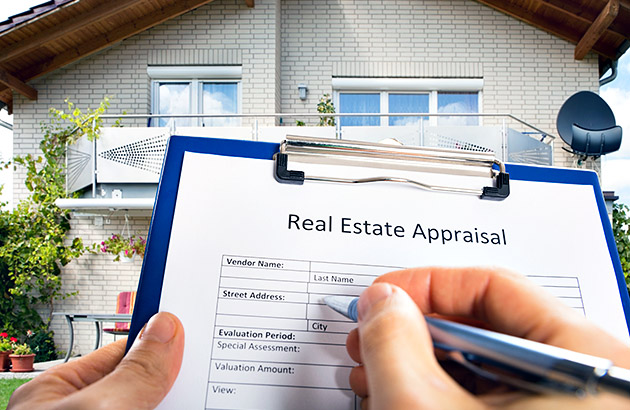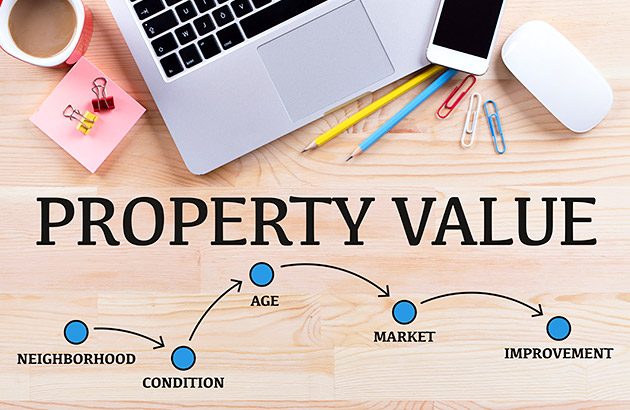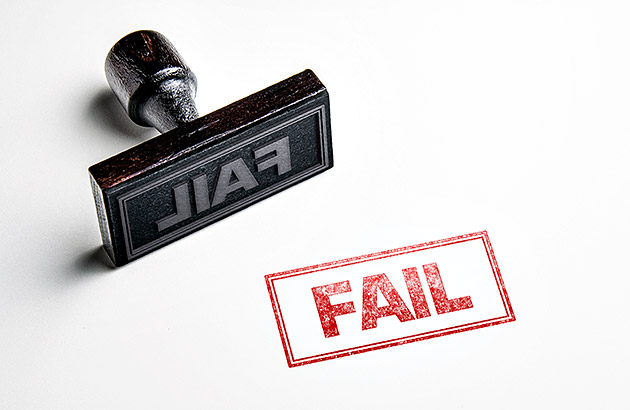THE APPRAISAL PROCESS

Whether you’re buying a new house, selling a house or refinancing an existing mortgage, a home appraisal is a key component of each transaction. Understanding the appraisal process and how it impacts your home’s value is extremely important. The more you understand, the smoother the transaction will be.
WHAT IS A HOME APPRAISAL AND WHY IS IT IMPORTANT?

A home appraisal is an independent and impartial analysis of a home and its value, and are often a key contingency in contracts. Therefore, regardless of your role, appraisals are an important piece for all parties involved in the transaction: the lender, homebuyer, seller, and homeowner.
- For the Lender: Appraisals are in place to protect the lender's interests, assuring them that they won’t lend a borrower more than a property is worth.
- For the Homebuyer: An appraisal is important to the buyer because it provides proof that the property has been fairly priced, and will hopefully appraise for at least the offer price they submitted to the seller. If the appraisal comes in at or above the contract price, the transaction proceeds as planned. If the appraisal comes in lower than their offer, it can delay or derail the transaction. The buyer will have to renegotiate the price with the seller, as the lender won't lend a buyer more than the home is worth.
- For the Seller: And likewise, the appraisal is important to the seller because it tells them how much their home is worth (the fair market value of their property) and if they priced their home correctly. A low appraisal, if accurate, will likely mean the seller has to renegotiate with the buyer to either drop their price to the appraised value or see if the buyer is willing to pay the difference out-of-pocket. If priced too low, the seller may not recover all the equity they have acquired while owning the property, essentially leaving money on the table.
- For the Refinancing Homeowner: If a homeowner is refinancing a conventional mortgage, a low appraisal can prevent them from doing so. The home must appraise at or above the amount needed to refinance for the loan to be approved.
PREPARING FOR A SUCCESSFUL HOME APPRAISAL

As the seller, it is imperative that you prepare for a successful appraisal. To make a good first impression, you must show the appraiser that you have a well-maintained home. If an appraiser sees a house that looks junky or unkempt, they’ll have reason to believe that the house itself hasn’t had proper maintenance, which would lower the value of the property. Although appraisers are required to follow strict regulations, much of their job is subjective. There are a few things you can do to help increase your home appraisal value:
- Curb Appeal: Be sure the front of the house is neat and tidy. Pull weeds, mow the lawn, trim the hedges, edge the grass, plant some flowers, brush away cobwebs, and clear away leaves and debris. While you can’t necessarily put a price on curb appeal through quantitative appraisal methods, appraisers do take it into account qualitatively when reconciling the final value. Don’t water the lawn or run the sprinklers right before the appraisal, as appraisers will need to measure around the outside of your house.

- Touch Up Exterior Paint: Be sure the paint looks nice and clean. Appraisers will factor peeling paint into their evaluation, especially if they are doing an FHA mortgage appraisal.
- Declutter/Deep Clean/Stage: Declutter, deep clean, and stage each room to highlight the unique features that may elevate its value, such as a striking fireplace, crown molding or imported tiles.
- Repairs: Even minor repairs can make a huge difference, as an appraiser may devalue your home if it appears the home hasn’t received adequate maintenance. Go through each room and fix items, such as drippy faucets, broken windows, faulty locks or squeaky doors.
- Privacy During Appraisal: The appraiser will need space to take measurements and photos without any disruptions or distractions. Therefore, it’s best to take young children and pets out during the appraisal process. Your agent may be present if the appraiser has any questions about your home.
- Renovations: Compile a list of upgrades you have made to the home, both aesthetic and functional, along with the invoices and warranties. This will help the appraiser see the extra value you have added to the home, and just may help them justify their final appraised value of the property.
HOW PROPERTY VALUES ARE DETERMINED

During the home appraisal process, a qualified appraiser will conduct a thorough inspection of the property, inside and out, to assess how the property compares to similar properties in the area. They will document your home’s age, construction quality, the integrity of your property’s roof and foundation, and even the health of your gutters and siding. They will study the floorplan, number of rooms, assess if there is an attic, basement or crawlspace, and even the size of your driveway. The appraiser will measure and photograph each room, and the lot the property sits on. External factors like your home’s proximity to good schools, community centers, and other conveniences are considered as well. Housing trends, neighborhood demographics, and how the home fits into the neighborhood also help to determine the property’s appraisal value. The appraisal can take from 30 minutes to three hours. Once the appraiser has all the information they need, they will write up their findings in the Uniform Residential Appraisal Report form and will then send the completed report to the buyer’s lender.
WHEN A HOME FAILS TO APPRAISE

Typically, homes will appraise at or above the contract value 80%-90% of the time, depending on the market. But if the appraisal comes back lower than expected, there are a few reasons it could have failed to appraise:
- Contract Price is Over Market Value: In rising real estate markets, it’s common for buyers to compete for a house and drive up the price above market value. At that point, the biggest mistake sellers make is assuming that the buyer will bring extra cash to the table as needed. This is why pricing your house correctly from the start is key.
- Appraiser Finds Issues Impacting Value: In some cases, an appraiser will identify an issue with the property that must be factored into the appraisal. For example, a room addition without a permit or repairs that are required to be corrected before a house can appraise.
- An Inexperienced Appraiser: There are a lot of factors that go into appraising a property accurately. "Geographic competency" or an appraiser's knowledge of the local area can make a big difference in whether an appraisal reaches true market value of a home.
CAN YOU CHALLENGE A LOW APPRAISAL?
If the appraisal does come back lower than you anticipate, you may have a few options:

- Negotiate: Between a down payment and closing costs, the buyer may not be able to afford the difference between what their lender will cover in a mortgage and their offer price. In this case, the seller may have to reduce the asking price to match the appraisal or meet somewhere in the middle, where ideally, both parties find a happy compromise to save the sale.
- Submit a Reconsideration of Value: The challenge to the appraised value has to originate from the lender, and better yet if you can bring evidence to the table, then you can submit what’s called a reconsideration of value to the appraiser. For example, there are two identical homes in the same location but the appraiser pulled the lower value of the two to appraise your home. Turns out one of them was a divorce sale and that’s the only reason it sold for less. Then, you might have a case that would prompt an ethical appraiser to own up to the mistake and modify their report.
- Order a Second Appraisal: A second opinion could lead to a valuation that’s closer to the buyer’s offer price, but it might require the buyer to secure a different lender. If the seller is pushing for a second opinion, the seller would have to pay for it.
When everything goes smoothly, the home appraisal is just another box to check on the closing checklist. Regardless of which situation you encounter in your home buying, selling, or refinancing experience, a basic understanding of how the appraisal process functions can only work in your favor, especially if you're buying a home for the first time.
Categories
Recent Posts










